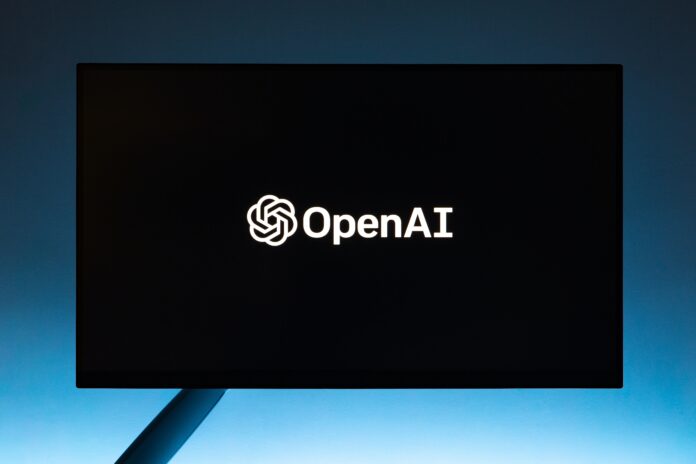OpenAI is a cutting-edge artificial intelligence (AI) research organization that aims to advance the field of AI, develop AI technologies that benefit humanity, and ensure the responsible and ethical deployment of AI in various domains. OpenAI was founded in 2015 as a non-profit organization, with the mission of creating safe and beneficial artificial general intelligence (AGI) that surpasses human capabilities across a wide range of tasks. In this article, we will provide a detailed overview of OpenAI, including its history, mission, research areas, achievements, and impact on the field of AI.
History of OpenAI:
OpenAI was founded in December 2015 as a non-profit organization by Elon Musk, Sam Altman, Greg Brockman, Ilya Sutskever, John Schulman, and other prominent individuals in the field of AI. The organization was established with the goal of advancing the field of AI in a manner that is safe, beneficial, and aligned with the interests of humanity. OpenAI’s founders recognized the potential of AI to have a transformative impact on society and sought to ensure that the development of AI technologies benefits humanity as a whole.
In the years since its founding, OpenAI has undergone several evolutions in its organizational structure and funding model. In 2019, OpenAI transitioned from being a non-profit organization to a “capped-profit” company, which means that it can earn revenue to support its mission, but its primary fiduciary duty remains towards humanity. OpenAI has also received funding from a diverse set of sources, including private donors, corporate partners, and public grants, which enable it to carry out its research and development activities.
Mission and Principles of OpenAI:
OpenAI’s mission is to ensure that artificial general intelligence (AGI) benefits all of humanity. AGI refers to highly autonomous systems that can outperform humans in most economically valuable work. OpenAI aims to build safe and beneficial AGI directly, but it also considers its mission fulfilled if its work aids others in achieving this outcome.
OpenAI is guided by a set of key principles that inform its research and development activities:
Broadly distributed benefits:
OpenAI commits to using its influence over AGI deployment to ensure it benefits all of humanity and avoids uses that harm humanity or concentrate power disproportionately.
Long-term safety:
OpenAI is dedicated to conducting research that makes AGI safe and promoting the adoption of safety measures across the AI community. It aims to prevent late-stage AGI development from becoming a competitive race without adequate safety precautions.
Technical leadership:
OpenAI aims to be at the forefront of AI capabilities to effectively address AGI’s impact on society. It believes that policy and safety advocacy alone would be insufficient and strives to have a broad societal impact even before AGI is realized.
Cooperative orientation:
OpenAI actively cooperates with other research and policy institutions and seeks to create a global community that works together to address AGI’s global challenges. It aims to provide public goods, such as publishing its research and sharing safety, policy, and standards research.
Research Areas and Achievements:
OpenAI conducts cutting-edge research in various areas of artificial intelligence and machine learning, with the aim of advancing the field and developing technologies that are safe, beneficial, and aligned with human values. Some of the key research areas and achievements of OpenAI include:
Reinforcement Learning:
OpenAI has made significant contributions to the field of reinforcement learning, which is a type of machine learning where agents learn to make decisions and take actions based on feedback from their environment. OpenAI has developed state-of-the-art reinforcement learning algorithms that have achieved impressive results in various domains, such as robotics, game playing, and control systems.
Natural Language Processing (NLP):
OpenAI has also made significant advancements in the field of natural language processing (NLP), which involves enabling computers to understand, generate, and interact with human language. OpenAI has developed state-of-the-art models for tasks such as language translation, sentiment analysis, question answering, and text generation. One of its notable achievements is the development of the GPT (Generative Pre-trained Transformer) series of models, which have set new benchmarks in language understanding and generation tasks.
Generative Models:
OpenAI has been at the forefront of research in generative models, which are AI models that can generate creative content such as images, music, and art. OpenAI’s research in generative models has led to the development of impressive technologies, such as the DALL·E model, which can generate images from textual descriptions, and the MuseNet model, which can generate music in various styles and genres.
AI Safety:
OpenAI is committed to conducting research that makes AGI safe and promoting the adoption of safety measures across the AI community. It has actively engaged in research to mitigate risks associated with AGI, such as developing techniques for robust and safe AI, studying interpretability and explainability of AI models, and exploring ways to align AI systems with human values.
Ethical AI:
OpenAI is also dedicated to ensuring that the deployment of AI technologies is ethical and aligned with human values. It actively engages in discussions around AI ethics, fairness, accountability, and transparency, and seeks to promote responsible AI practices across the industry. OpenAI has been vocal about the need for avoiding biases in AI models and addressing societal implications of AI technologies.
Policy and Advocacy:
OpenAI actively engages in policy and advocacy efforts to shape the development and deployment of AI technologies. It collaborates with governments, policymakers, and other organizations to address the societal impacts of AI and to create policies and regulations that ensure the responsible use of AI. OpenAI also participates in global forums and initiatives related to AI governance, safety, and ethics.
Impact of OpenAI:
OpenAI has had a significant impact on the field of artificial intelligence and has contributed to shaping the direction of AI research and development. Some of the key impacts of OpenAI include:
Advancements in AI Research:
OpenAI’s research and development activities have resulted in significant advancements in the field of AI, particularly in areas such as reinforcement learning, natural language processing, and generative models. Its models and technologies have set new benchmarks and have been widely adopted by the AI community, driving progress in the field.
Safety and Ethics:
OpenAI’s focus on AI safety and ethics has raised awareness about the importance of responsible AI development and deployment. Its research and advocacy efforts have contributed to discussions around the responsible use of AI, addressing biases in AI models, and ensuring the ethical deployment of AI technologies in various domains.
Public Goods:
OpenAI’s commitment to providing public goods, such as publishing its research and sharing safety, policy, and standards research, has contributed to the open and collaborative nature of AI research. It has facilitated the exchange of knowledge and expertise, allowing the broader community to benefit from its research and findings.
Industry Leadership:
OpenAI’s technical leadership and cutting-edge research have positioned it as a leader in the AI community. Its work has inspired and influenced other research institutions, companies, and policymakers in shaping the future of AI technologies and their societal impacts.
Global Collaborations:
OpenAI’s cooperative orientation has led to collaborations with other research and policy institutions, creating a global community that works together to address the challenges posed by AGI. Its collaborative efforts have fostered partnerships, joint research, and shared resources, contributing to a collaborative approach to AI governance and policy-making.
Conclusion:
OpenAI is a pioneering organization in the field of artificial intelligence that is dedicated to advancing the state of AI research, promoting safety and ethics in AI development, and advocating for responsible AI practices. Through its cutting-edge research, technological advancements, and collaborative efforts, OpenAI has made significant contributions to the field of AI and has shaped the direction of AI research and development.
OpenAI’s focus on developing advanced AI models, such as the GPT series, has pushed the boundaries of what is possible in language understanding and generation tasks. Its research in reinforcement learning, natural language processing, and generative models has resulted in state-of-the-art technologies that have been widely adopted and have set new benchmarks in the field.






















